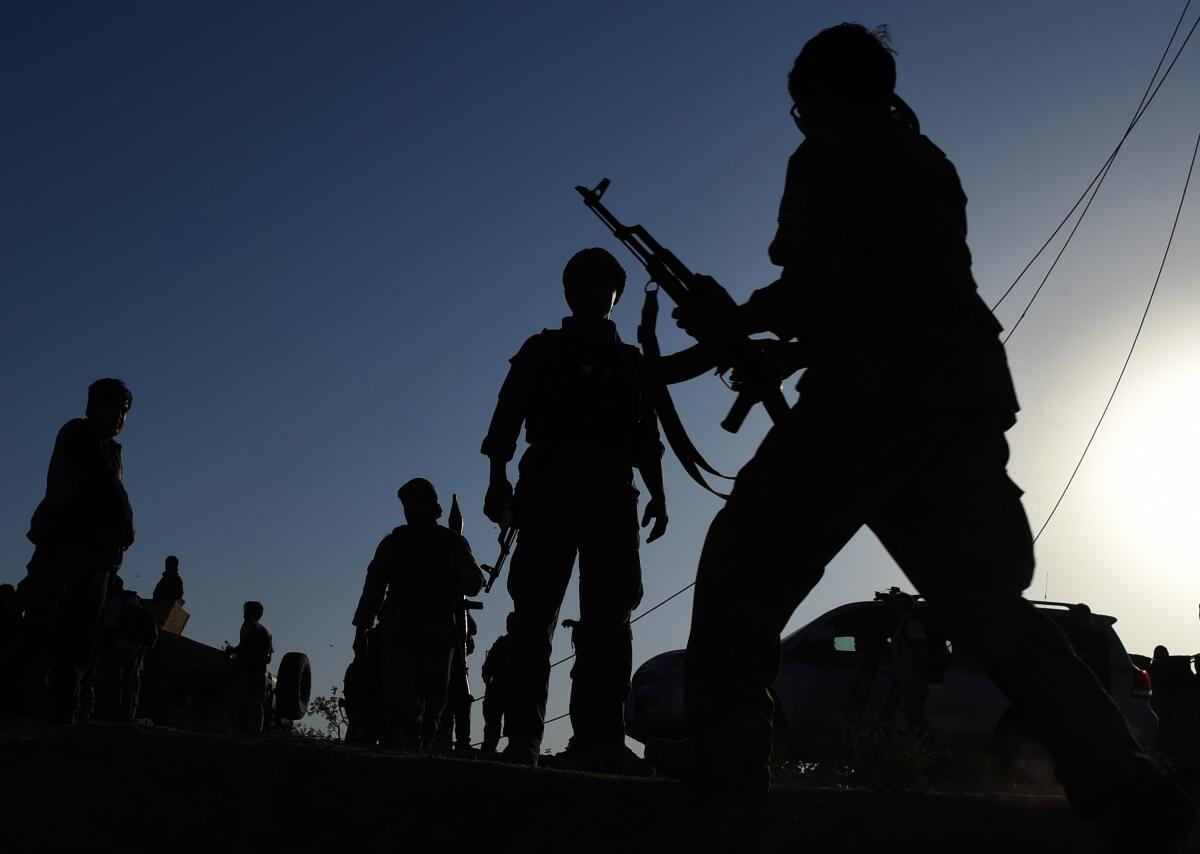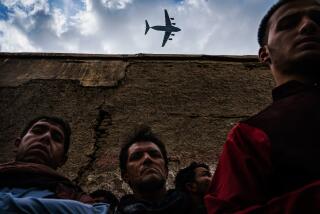Op-Ed: Is this the time the Afghanistan war ends?

- Share via
On the night of Sept. 11, 2001, in the bomb shelter of the White House, I was part of President George W. Bush’s crisis team and among those who urged him to use military force in Afghanistan. The Taliban, then Afghanistan’s de facto government, was harboring al Qaeda, the terrorists that had attacked the World Trade Center.
Although Bush would warn that the global war on terror that started in response to 9-11 would last a generation, I doubt that any of us involved in its early planning had in mind that U.S. troops would still be fighting in Afghanistan two decades later. But we are.
Now, peace talks between the U.S. and the Taliban, skillfully led on the American side by U.S. envoy Zalmay Khalizad, have produced initial results. On Saturday, Secretary of Defense Mark Esper said the Taliban had agreed to a seven-day “reduction in violence” accord, though the pact has not yet gone into effect.
A door is opening that may lead to the end of our 20-year war there. We owe it to all who have been involved to have the courage to walk through that door.
There was every reason in 2001 to send troops to Afghanistan. Al Qaeda first attacked the U.S. in the 1990s, and in 1999 and 2000, the Taliban refused to comply with United Nations resolutions calling for them to eject the terrorists. We made it clear that if al Qaeda attacked the U.S. again, we would hold the Taliban leadership responsible. After 9/11, we gave them one last chance to hand over the terrorists. They again refused.
U.S. forces invaded Afghanistan in October 2001. A few weeks later, both al Qaeda and the Taliban had been driven from their camps and from the cities. Many fled across the border into Pakistan.
What was originally intended as a limited action turned into a military occupation. The United States was left with the task of creating a democracy in one of the world’s least developed and most violent nations. Our troops were put to work supporting and defending a new Afghan government against the Taliban’s attempts to return to power.
It has been a very expensive exercise, in terms of American, allied and Afghan lives, and U.S. dollars. And it has failed to fully defeat the Taliban militarily, or to create a central government that can control all parts of the country.
All sides have suffered sufficiently to go to the negotiating table and seek a modus vivendi and an end to the fighting. If the reduction in violence pact goes forward, and if the Taliban abide by its terms, then the process will move to its next phase, a formal peace agreement that will include the withdrawal of some U.S. troops and the initiation of talks including the Taliban and the Afghan national government.
More skilled diplomacy will be required, as will compromise on all sides. If the Taliban prove unable to halt the fighting, we must be prepared to continue our military presence and pressure. However, if the Taliban reduces the violence and then agrees to end the fighting permanently, ensures no al Qaeda or Islamic State terrorists use the country as a sanctuary, and reaches an accord in multi-party inter-Afghan talks, then we should be prepared to withdraw all U.S. forces.
Our purpose in invading 20 years ago was to remove the terrorist threat to the U.S. and to punish the Taliban for having cooperated with al Qaeda. Those goals will have been achieved. We also will have created a space and a chance for a non-Taliban government to succeed in the cities and some of the countryside. If American forces leave the country completely, and the Taliban later violates the terms of the agreement, we can still make them pay a high price and ensure that no terrorist base of operations ever reappears in Afghanistan.
With eyes wide open and guns at the ready should the process fail, we must end the war. Our goal must be to bring about a peace that protects those who have fought alongside us, and brings our troops home. We must test to see if this is the time that this war ends.
Richard A. Clarke was the national coordinator for security and counter-terrorism in the White House from 1998-2001. He is chairman of the board of governors of the Middle East Institute.
More to Read
A cure for the common opinion
Get thought-provoking perspectives with our weekly newsletter.
You may occasionally receive promotional content from the Los Angeles Times.










